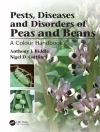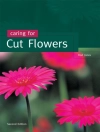With exponentially increasing population across the globe and shrinking resources, the concern of food security is looming large over the world community. To catch up with the fierce pace of growth in all the sectors of development, ensuring uninhibited availability of food resources is a prime agenda. The growing global demand for food, feed, fiber and bio-based renewable materials, such as bio-fuels, is changing the conditions for genetic resources development and bio-resource production worldwide.
The crucial role in ensuring food security is played by the agro-based industries and enterprises. Advances in plant genetic resources coupled with traditional knowledge of the local tribes and native practices facilitate achievement of food security.
Jadual kandungan
Foreword.- Introduction.- Chapter 1 Plant genetic resources and traditional knowledge: Potentials and challenges.- Chapter 2 Role of plant genetic resources and traditional knowledge in food security.- Chapter 3 Global strategies for sustainable use of agricultural genetic and indigenous traditional knowledge.- Chapter 4 Plant genetic resources and intellectual properties of indigenous knowledge conservation (ITK).- Chapter 5 Farmers’ Rights to Plant Genetic Resources and Traditional Knowledge for livelihood.- Chapter 6 Plant genetic resources, traditional knowledge and their use in crop improvement.- Chapter 7 Biotechnological approaches for conservation of plant genetic resources and ITK.- Chapter 8 Ex situ and in situ conservation of Plant Genetic Resources and ITK.- Chapter 9 Access and benefit sharing on the use of indigenous traditional knowledge.- Chapter 10 Plant genetic resources conservation and ITK in light of recent policy developments.- Chapter 11 Plant Genetic Resources and ITK conservation towards resilience to climate change.- Chapter 12 Rational of participatory approaches for the management of plant genetic resources and ITK.- Chapter 13 Bio prospecting of genetic resources and indigenous traditional knowledge.- Chapter 14 Role of women in Plant Genetic Resources and Indigenous Traditional Knowledge for food security.- Chapter 15 International treaties for sustainable utilization of Plant Genetic Resources and ITK.
Mengenai Pengarang
Dr. Romesh Kumar Salgotra is currently working as associate professor cum coordinator in School of Biotechnology, Sher-e-Kashmir University of Agricultural Sciences & Technology of Jammu, India.
Few of his important selective publications are:
1. Salgotra, R. K., Gupta, B. B. and Stewart, C. N. (2014). From genomics to functional markers in the era of next-generation sequencing. Biotechnology Letter 36(3): 417–426.
2. Mehraj-Ud-Din, Salgotra, R.K. and Gupta, B. B. (2013). Interaction of Restorer Genes in ‘WA’-type Cytoplasmic Male Sterility System in Rice (Oryza sativa L.). Natl. Acad. Sci. Lett. 36(3):259–264.
3. Salgotra, R. K., Gupta, B. B. and Ahmed, M. I. (2012). Characterization of thermo-sensitive genic male sterility (TGMS) rice genotypes (Oryza sativa L.) at different altitudes. Australian Journal of Crop Science 6(6):957-962. <
Dr. Bharat Bhushan Gupta is currently working as professor and registrar at Sher-e-Kashmir University of Agricultural Sciences & Technology of Jammu, India.
His research publications are:
1. Bijral, J.S., Singh, B., Kanwal, K.S, Gupta, B.B. and Sharma, T.R. (1990). A new hybrid between Aegilops and Secale. Current Science. 59: 520.
2. Bijral, J.S., Gupta, B.B., Singh, B., Sharma, T. R., Kanwal, K.S. and Gupta, S.C. (1990). Hybrid necrosis in wheat. Indian J. Genet. 5: 189-191. <3. Bijral, J.S., Gupta, B.B., Singh, B., Sharma, T. R. and Kanwal, K.S. (1990). Studies relating to direct introgression from T. monococcum to hexaploid wheat. Cereal Reearch Communication. 18: 139.
4. Bijral, J. S., Kanwal, K.S., Gupta, B.B., Singh, Bikram. and Sharma, T. R. (1990). Effect of gibberellic acid (GA3) on cytoplasmic male steriles and their maintainer/restorer lines in rice. Acta Agronomica Hugarica. 39: 327-329.
<












